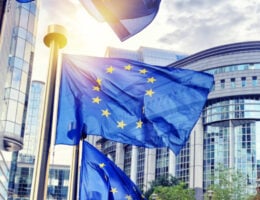The proposed amendments to the Consumer Protection Act Regulations in South Africa aim to enhance consumer privacy by regulating direct marketing practices. Open for public comment until 15 January 2025, these changes focus on creating an opt-out registry managed by the National Consumer Commission, allowing consumers to block unsolicited electronic communications. Direct marketers will be required to register, renew annually, and cleanse their databases regularly to comply with the new rules. The amendments also introduce enforcement mechanisms for non-compliance and align with the Protection of Personal Information Act, ensuring comprehensive consumer protection against unwanted marketing.
The EU Corporate Sustainability Due Diligence Directive exempts financial institutions from due diligence to identify, mitigate and remedy potential adverse impacts, whether human rights or environmental, in their downstream “chain of activities”. In practice, however, it will be hard to escape entirely, not least as the sector will still need to adopt and implement transition plans.
In a major shakeup to businesses’ obligations relating to human rights, environmental standards and climate change, the Corporate Sustainability Due Diligence Directive (CS3D) is set to become law. In this article, we focus on the climate-related obligations enshrined in the CS3D: the obligation imposed on companies to adopt and put into effect climate transition plans.
As part of the European Union (EU)’s European Green Deal, one of the areas of EU law that has developed most rapidly and profoundly is that relating to corporate sustainability governance. Most recently, the Corporate Sustainability Due Diligence Directive (“CS3D”), has been provisionally agreed at a political level in December 2023, and confirmed by COREPER in a revised version in March 2024. The final text of the CS3D must still be formally adopted by the European Parliament and the Council of Ministers before it enters into force.
The Corporate Sustainability Due Diligence Directive (“CS3D”) was provisionally agreed at a political level in December 2023, and confirmed by COREPER in a revised version in March 2024. Once formally approved, this new law will have significant impacts on many EU companies and non-EU companies active in the EU, as well as on their value chains throughout the world. In this first installment of our new “CS3D Explainer Series”, we answer the following four key questions: “Which companies are covered?,” “What will be their new obligations?,” “Why should they comply?” and “When will this start to apply?”
The transition to a carbon-neutral economy is a seismic shift on a global scale, leaving no sector untouched. The urgent strategic, operational and reputational challenges are considerable, but so are the opportunities for growth. We are happy to invite you to
Transform Powerfully: Baker McKenzie Energy Transition Dialogue
Navigating your energy transition journey: Opportunities and challenges for suppliers, industrials and other market players
Thursday, 25 January 2024, 12:00 pm to 7:00 pm CET
Baker McKenzie, Neuer Zollhof 2, 40221 Dusseldorf, Germany
The European Commission has published practical advice in the form of recommendations explaining that the EU Taxonomy can be used not only to disclose taxonomy-aligned activities and capital expenditures, but to define transition targets and to identify the finance needed to meet them. In this way, the Commission considers that the EU Taxonomy can be used as “forward-looking tool using its criteria as reference points for setting targets.”
In this latest instalment of our Demystifying ESG series, besides considering the Commission’s recommendations generally, we’ll discuss how this “tool” will work in practice across a range of economic activities and how it can be used to compare current with planned environmental performance, as well as a communication tool to articulate transition finance needs.
On 17 August 2023, the EU Commission adopted the implementing regulation regarding the reporting rules applicable during the transitional phase of the Carbon Border Adjustment Mechanism (CBAM).
The CBAM formally entered into force on 17 May 2023. It requires importers to report the so-called ’embedded emissions’ of certain (mostly industrial) products and of electricity imported into the EU in order to ensure equivalent carbon pricing for imports and domestic (i.e., EU) products and electricity.
On 19 April 2023, the European Parliament adopted the final text of a new EU Regulation aimed at tackling deforestation and forest degradation (the “Deforestation Regulation”) requiring companies to undertake due diligence into the source of a wide range of commodities, including cattle, cocoa, coffee, palm-oil, rubber, soya and wood, to ensure…









